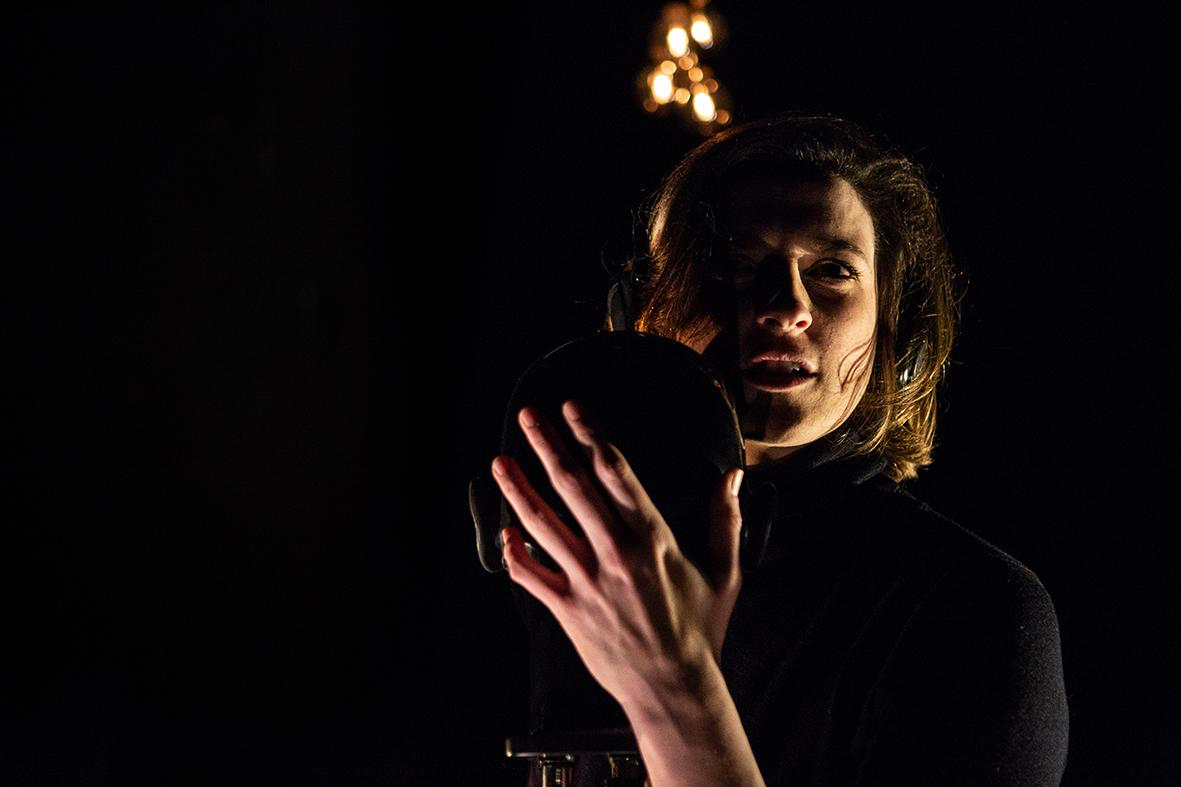Thrown, Living Record Productions, Junkyard Dogs @ The Brighthelm , 8 May 2019
A woman stands alone on the small stage; she wears a pair of headphones, as does Frank, the head shaped recording equipment in front of her – as do we, her audience. “How are you?”, she begins, or rather, “how are we?”. Her voice whispers into our ears, unsettlingly intimate; it is as if we are hearing the voice inside her head – we are her mind’s ear.
I must admit to an ignorance of the meaning or use of ‘binaural sound’, a very current watchword of modern tech-savvy theatre, along with ‘immersive’ and ‘site-specific’. I’ve experienced it being used as a clever device which added not much at all; but Thrown, by award-winning playwright Jodi Gray, opened my eyes – or rather my ears – to the possibilities of the technology to really bring a piece to life. As Artistic Director Ross Drury puts it, “what’s interesting about binaural theatre is that it swaps everything around, sound is your major storyteller with text as an underscore”. Having said that, the multilayered and elliptical text is very much the star of the show. The voices, drawn from real testimonies of people’s memories of ‘the end of childhood’, as part of a wider project which runs alongside the show, are deftly differentiated by accent and cadence by performer Jill Rutland. The project, which centres on a website (www.livingrecord.co.uk) and the Record of Living archive, aims to visit people from prisons to schools to old people’s homes to gather their memories of the moment they realised their childhood was over.
Rutland plays the unnamed protagonist, a child psychologist who has spent her career gathering these testimonies while trying to escape memories of her own childhood in care and foster homes (I did wonder at the likelihood of this life path, but Rutland carries the ‘poor-girl-made-good’ persona with aplomb, and a flawless Geordie accent). As her own grip on reality starts to slip, perhaps due to her ‘diagnosis’, or simply through age, recorded memories from her patients blend with fragments of her own past as she struggles to retain, recall and record her own life and identity. The slow reveal of her backstory, like gold slowly sifted and sieved from dust, is the narrative driver; there are no great twists in the plot and little visual to hold our attention. Yet I was, for the most part, gripped.
The lynchpin of this slight, sharp shard of a play that gets right to the heart of how childhood experiences shape us, and how memories form our sense of selves, is Rutland’s performance. She is utterly convincing, thoughts and emotions chasing themselves across her face and through her body as she embodies her patients and then returns to face the desperation of mental dissipation. She is mesmerising; despite the risk of the headphones’ integrated microphones picking up and amplifying every audience member’s cough and yawn – there was barely a sound – you could have heard a pin drop. Or a whisper in your ear. Spellbinding. **** (Four stars)








